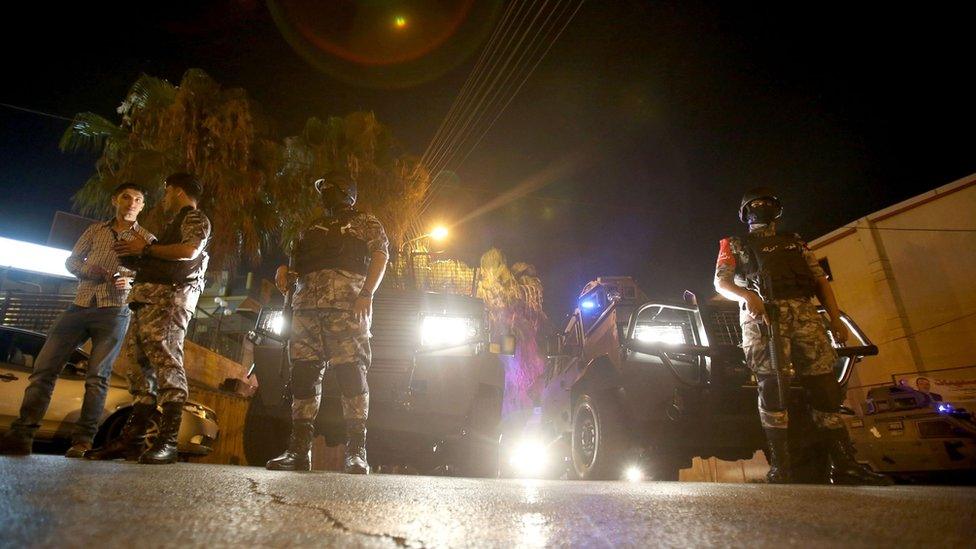Jordan's King Abdullah calls for Israel trial over embassy deaths
- Published

Jordan wanted to question the guard but Israel said he had diplomatic immunity.
Jordan's King Abdullah has urged Israel to put on trial an Israeli security guard who shot dead two Jordanians near Israel's embassy in Jordan on Sunday.
King Abdullah also described the congratulations given to the security guard by Israeli Prime Minister Benjamin Netanyahu as "provocative".
Israel says the security guard shot a Jordanian who had attacked him with a screwdriver and a second Jordanian was inadvertently killed in the gunfire.
The incident led to a brief standoff.
Jordanian authorities wanted to question the guard but Israel said he had diplomatic immunity.
Israel's embassy staff have since returned to Israel and Mr Netanyahu embraced the security guard and praised his handling of the situation.
But in a statement from the royal court, King Abdullah said Mr Netanyahu's behaviour towards the security guard had been "provocative on all fronts and enrages us, destabilises security and fuels extremism".
King Abdullah said the way the incident was handled would affect relations.
Israel's foreign ministry said a Jordanian - named in local media as Mohammed Zakaria al-Jawawdeh, a 17-year-old carpenter - stabbed the security officer from behind inside a residence used by the embassy. The second Jordanian to be killed was the building's landlord.
It is one of the most serious incidents to affect ties between the two countries since they signed a peace treaty in 1994.
On Monday Israel thanked Jordan for its "close co-operation".
Shortly afterwards Israel began removing security infrastructure around a key holy site in Jerusalem. Local media reported it was part of a deal with Jordan to allow the embassy staff to leave.
The railings and metal detectors had been installed near the Old City complex, known to Muslims as Haram al-Sharif and to Jews as the Temple Mount, after two Israeli police officers were killed nearby.
But Palestinians fiercely objected, seeing it as an Israeli attempt to exert control over the holy site.
There were also protests against the security set-up in Jordan, which occupied East Jerusalem from 1949 to 1967, funds the compound's upkeep and runs the Waqf, the religious trust which administers it.